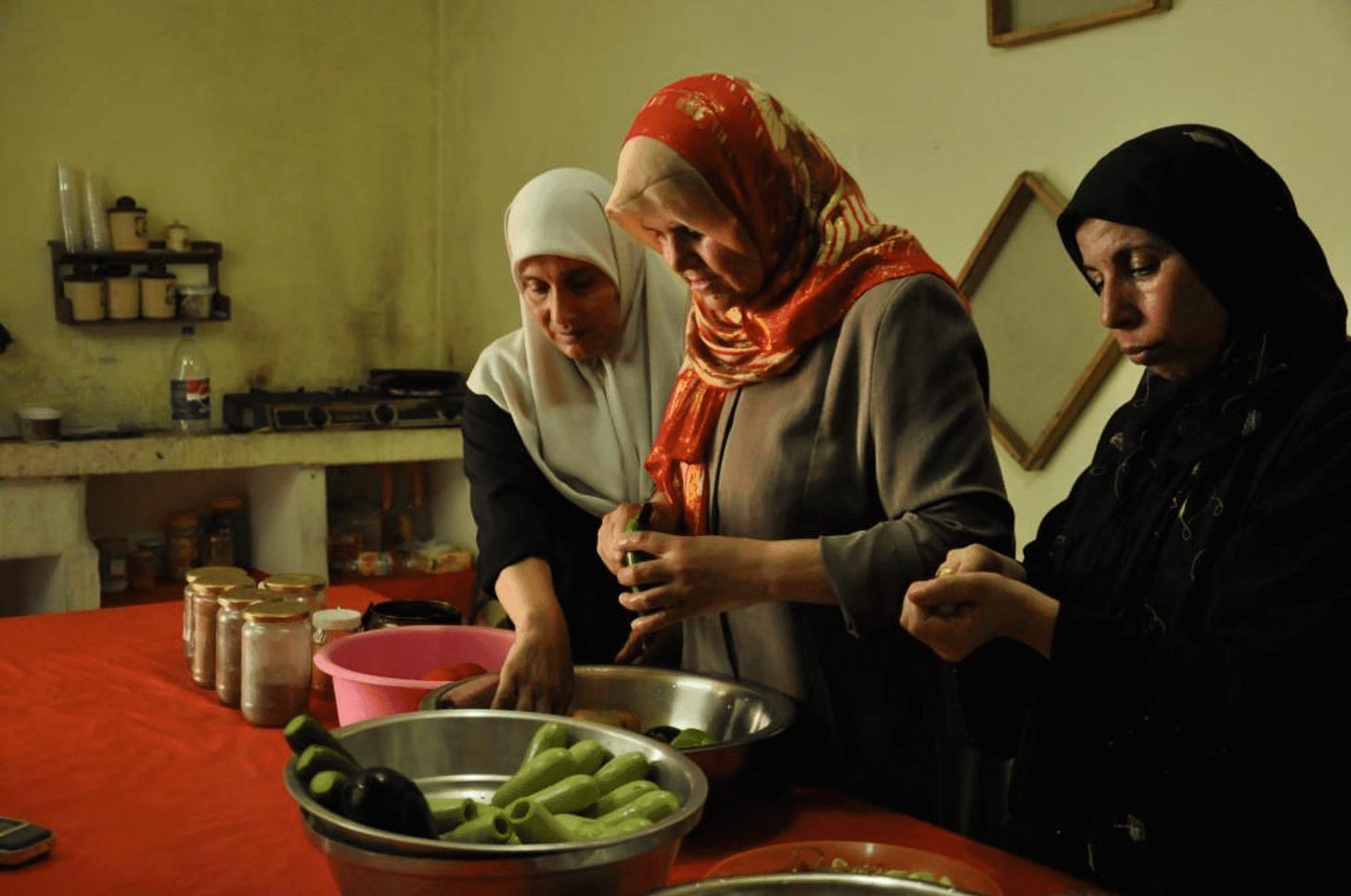Palestinian food as joy, resistance and political map
Plus, COP28 marked a first-ever for food systems in climate conversations.
Just a few more days until the winter solstice is here in the US — the longest night of the year, after which the days, ever so slowly, begin to grow longer. For now, stories from this side of the dark:

Palestinian chefs are using food to share humanizing stories about Gaza
Laila El-Haddad was a reporter for Al Jazeera in Gaza for years before she wrote a cookbook. “The more I wrote about guns and hard news, the more jaded I became,” she told me. “If my objective was to convey the everyday struggles of Palestinians to a wider audience, especially a western audience, I felt like I was failing.”
She decided to write a cookbook called The Gaza Kitchen to find a different way to tell the world about Palestinian life. The book combined recipes, historical context and pictures of Gazans cooking, and went on to earn accolades from the likes of Anthony Bourdain and Yottam Ottolenghi. For the Guardian, I spoke to El-Haddad and other Palestinian foodies and chefs about the ways Palestinian food can serve as a source of joy and resistance — sometimes as a way of circumventing politics, and sometimes as a way of understanding them.
“Images in the mainstream media here [in the US] basically show Palestinians as evil, angry, throwing stones or burning tires,” Wafa Shami, a Palestinian food blogger, told me. “But Palestinians are so much more — our art, our music, our food.”
COP28 addressed food systems for the first time
Food systems — what we eat; how we grow, ship and cook it; and how we dispose of (and sometimes waste) it — are responsible for roughly a third of global greenhouse gas emissions. But for the better part of three decades, the agreements that emerge from the UN’s yearly climate summits have left out the impact food systems have on our climate.
That finally changed this year, when food was included in both the programming and final agreement like never before. As I wrote in the Guardian, there’s still plenty of obstacles to overcome, from a sharp rise in Big Ag lobbyists to the need for more urgency, but many advocates came away encouraged nonetheless.
“It’s really exciting that food is finally on the table. Now we have this ability to talk about food systems as a solution to the climate crisis in a way that we haven’t ever had the chance to before,” Danielle Nierenberg, president of Food Tank, told me.
I’ll leave you with “Jerusalem” (in English, Arabic and Hebrew) by Naomi Shihab Nye, whom I was reminded of recently via Sara Kay Mooney’s excellent Advent poetry newsletter, which I’ve been reading for years. “A woman speaks to a tree in place / of her son. And olives come.”
Wishing, for us all, a place in our brains where hate won’t grow,
Whitney



